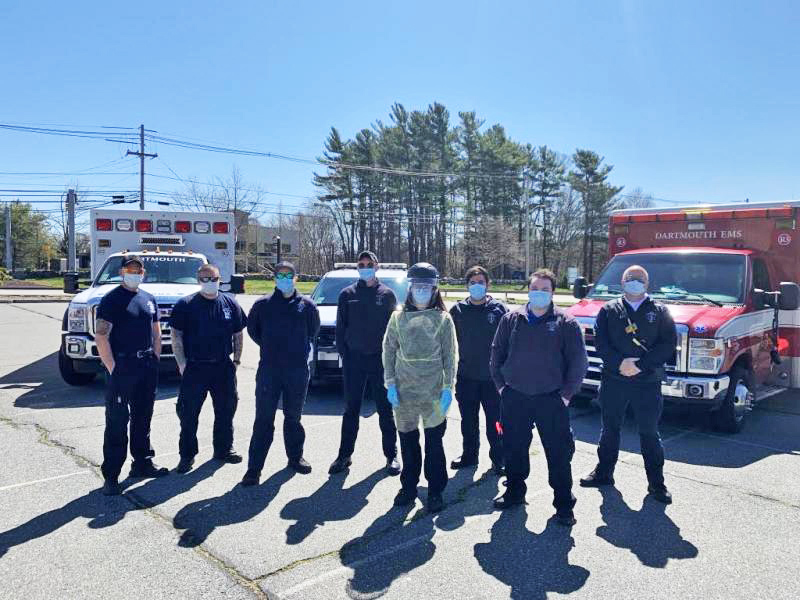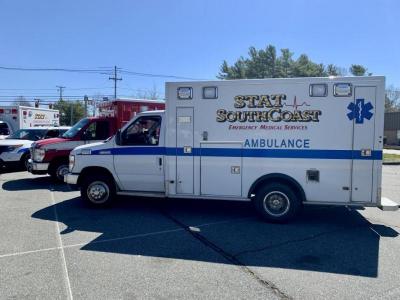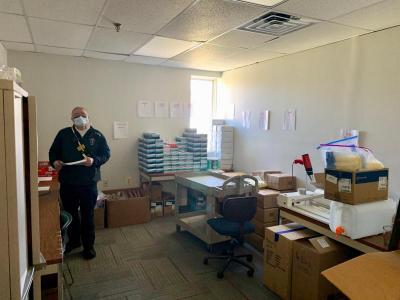How local EMS workers are tackling the pandemic
While most Dartmouth residents and workers are hunkered down in their own homes to ride out the pandemic, some are on the front lines fighting it every day.
EMS workers at ambulance service STAT Dartmouth are adapting to new procedures as they work together to combat Covid-19 and ensure safety for both paramedics and the people they help.
This all starts at the dispatch level. According to Operations Manager Frank O’Reagan, anyone who calls with symptoms such as respiratory problems or fever are to be treated as a possible Covid patient. He said this allows paramedics to better prepare for the scenario they will walk into.
Once on scene, paramedics must don a protective gown, gloves, and a medical mask with an added visor before getting to a scene where a person is exhibiting possible coronavirus symptoms, which O’Reagan said takes “a little longer” than a normal response.
“If [the pandemic] keeps going on, we’re ready for whatever it throws us,” he said.
The PPE kits are assembled by paramedic Caroline Cabral, all from equipment stored in a separate room dedicated to storing PPE for Covid calls.
“This room didn’t exist before Covid-19,” paramedic Ryan Snell said. “It used to be a training room.”
Additional precautions are also taken inside their Faunce Corner Road office. Staff must take regular temperature checks and paramedics have to remain in seperate parts of the building from the dispatch workers in order to minimize possible contamination. Additionally, vehicles are regularly disinfected upon return.
Jason Silva, a paramedic, said that while he’s now worn more PPE than before, he understands why these extra precautions are needed.
“It was a big learning curve at first, but we have a good handle now,” he added.
Snell said that there have not been any complaints about the extra safety, and that the community has come together to support the first responders, with residents and businesses sending additional masks and even fish and chips.
“We may look a little different coming into your house, but we’re just taking extra precautions to keep everyone safe,” Snell said.
And when asked if they’re afraid of getting the virus themselves, Silva, who is also a firefighter, simply shrugged.
“At the very least, I’d get two weeks vacation,” he joked.














